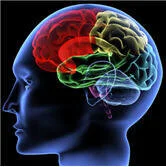Brain Stopper No. 2: 'Human Logic' is Bad
Is being logical unspiritual? That's what modern "apostles" and "prophets" want you to think.
In fact, it's not just unspiritual -- it's a sin to be repented of, according to Paul Cox, founder of Aslan's Place in Hesperia, Calif. His suggested prayer urges Christians to repent of "all intellectualism, ungodly reasoning, logic and humanism." Huh? When did logic become an evil comparable to "ungodly reasoning" and "humanism"?
I want to show that logic isn't bad -- it's a gift from God, and it protects us from harmful beliefs.
Human Logic vs. Heavenly Logic
"Apostles" and "prophets," like Cox, often claim that there are two types of logic: "human logic" and "heavenly logic." Human logic -- they say -- is unspiritual, evil, bad.
Another example of the "human logic is bad" teaching can be found in "apostle/prophet" Rick Joyner's prophecy titled Civil War in the Church. Back in 1996, Joyner prophesied that an end-time battle will be fought in the church between two types of Christians -- the "grey coats" and the "blue coats." The grey coats -- who represent the bad guys in Joyner's prophecy -- are Christians who use their "natural minds" and "human wisdom" to evaluate teachings in the church. The grey color of their coats represents "grey matter" -- which, Joyner points out, is a slang expression for "the brain."
But the blue coats -- the good guys -- don't rely on their brains to evaluate teachings. They're "heavenly minded" and "follow the Holy Spirit," according to Joyner.
See other recent examples of the "human logic is bad" teaching by Kathi Pelton and John Mark Pool.
The problem with their statements is that the Bible doesn't teach that there are two types of logic, and it doesn't teach that human logic is bad. Let's look at two Bible verses that have been misused by "apostles" and "prophets" to support these teachings.
1 Corinthians 1:21 and 3:19
In his first letter to the Corinthian church, the Apostle Paul says that the "wisdom of this world" is foolishness to God (1 Corinthians 3:19), and that God's plan of salvation seems like "foolishness" to humankind (1 Corinthians 1:21). So, the Apostle Paul believed that "human logic" is bad, right? Wrong. Confusion occurs because so-called prophets like Joyner teach that "worldly wisdom" and "human logic" are the same thing. They're not. They're very different.
When Paul talked about worldly wisdom, he was talking about the things that are valued by people who are separated from God -- things like power, fame and money. These things are the opposite of the things God values. That's why Paul says that God's plan of salvation -- through a crucified Christ -- appears like "foolishness" to worldly people.Paul's description of "worldly" wisdom matches James' description of "earthly" wisdom in James chapter 3 -- it's jealous, covetous and self-seeking (James 3:3-18).
So, it's selfish ambition that Paul and James are bashing -- not "human logic," as Joyner asserts.
Human Logic
Logic is the science of correct thinking. We use it to determine if our beliefs are sound or not. We use it everyday.
Not sure of this? Let me show you.
One of the rules of logic is called the "law of non-contradiction." This rule may sound complicated, but bear with me. In simple terms, it means that if two things contradict each other, then they can't both be true. For example, a moving car can't be both in the street and not in the street at the same time. It's either in the street or not in the street.
We use the law of non-contradiction when we decide if it's safe to cross the street. We use other laws of logic, too -- whether we know their names or not. And we have places for people who don't use them -- they're called mental hospitals.
That's because the opposite of being logical is being illogical. And being illogical isn't being spiritual -- no matter what teachers like Joyner or Cox want us to think.
Logic Glorifies God
God made our minds, and it glorifies Him when we use them. We were created in His image and that includes our ability to reason.
In fact, Jesus, Himself, is called "the Logic" in Scripture. Where? In John 1:1 -- where He's called "the Word." The Greek word for "Word" is logos -- which is where we get our English word for "logic."
In other words, Jesus is the Supreme Rational Being who governs all things. It shouldn't be surprising, then, that the Greatest Commandment includes an admonition for us to love God with all of our minds (Matthew 22:36-38).
Likewise, the original apostles never discouraged people from using their minds. In fact, they had harsh words for false teachers who didn't base their teachings on sound beliefs, but instead promoted a secret knowledge -- or "heavenly" knowledge, as Joyner would prefer to call it. Peter called these false teachers "unreasoning animals" (2 Peter 2:12).
So by not using their God-given abilities to reason -- through applying the rules of logic -- these false teachers are being unspiritual.
Why would they go to so much trouble to urge people to shut off their brains? So their followers won't scrutinize the teachings of these so-called prophets and apostles. If they did, they'd detect the error.
Think about it.

